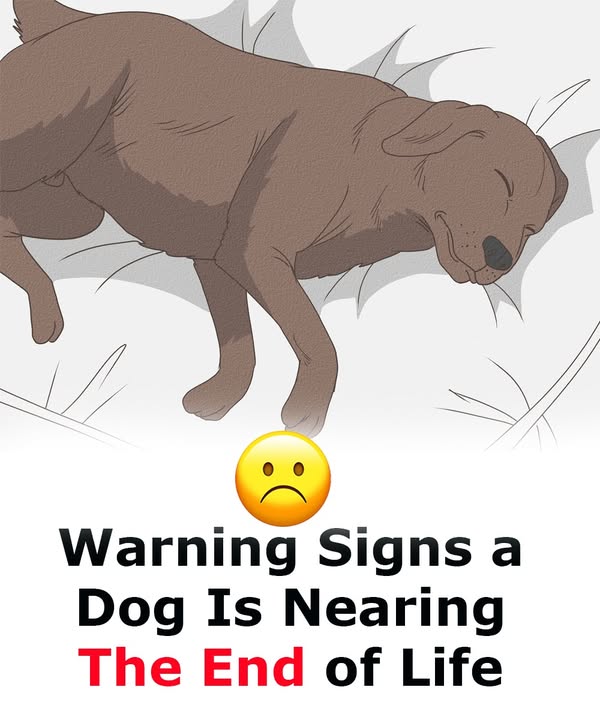Dogs are more than just pets—they’re companions, guardians, and cherished members of our families. They greet us with wagging tails after long days, stay loyally by our side through every life chapter, and offer a kind of unconditional love that’s hard to put into words. That’s why watching them age or struggle with illness can be one of the most heart-wrenching experiences a dog owner can face.

We all wish they could stay with us forever, but the reality is that dogs have much shorter lifespans than we do. Recognizing the signs that your dog is nearing the end of their life can help you make informed, compassionate choices about their care and ensure they experience comfort and dignity in their final moments. One of the earliest signs is a noticeable decline in energy. A dog who once ran eagerly to the door at the word “walk” may now stay curled up in their bed, uninterested in activities they once loved. This shift in behavior can point to physical discomfort, fatigue, or illness. You might also see changes in your dog’s personality. Some dogs become clingier than usual, seeking your presence constantly, while others retreat and prefer solitude.
Mood swings, confusion, and even increased aggression or fearfulness can also emerge as signs that something deeper is happening. Physical changes are also common. If your dog starts having difficulty controlling their bladder or bowels, or you notice more frequent accidents in the house, it may be due to weakened muscles or declining organ function. In some cases, they may even struggle to stand up or move around without help. Another red flag is a sudden or prolonged loss of appetite and interest in water. If your dog, who used to be excited at mealtime, suddenly stops eating or drinking, it could be a sign of internal pain or serious organ failure. This lack of nourishment can lead to malnutrition and dehydration, making them even more uncomfortable.
You may also find your dog sleeping more than usual. While older dogs do tend to nap more often, excessive fatigue combined with a lack of interest in their environment can signal that their body is beginning to shut down. Vomiting, diarrhea, or consistent nausea are more serious concerns. Occasional digestive issues happen to all dogs, but when these problems persist, they could indicate underlying conditions that need immediate attention. Breathing changes should also raise concern. Labored, rapid, or shallow breathing—especially when accompanied by coughing or wheezing—can point to heart failure, lung disease, or fluid buildup in the chest. Any irregular breathing pattern should be addressed by a veterinarian without delay. Gum color offers another visual clue. Healthy gums are typically pink. If your dog’s gums turn pale, blue, or gray, it may indicate poor circulation, anemia, or oxygen deprivation, all of which are potentially life-threatening conditions. In more extreme cases, seizures or trembling may appear.
These episodes can be triggered by a variety of severe medical issues including neurological damage or toxins in the body. If your dog experiences a seizure, even if it’s brief, seek emergency care. Changes in their body odor or the condition of their coat and skin can also be telling. Infections, dental problems, or internal imbalances can create unusual smells. Their fur may become dull, and skin issues like lumps, sores, or flakiness may develop. Lastly, emotional withdrawal is often one of the clearest indicators. A dog who used to perk up at the sound of your voice, chase their favorite toy, or greet you at the door may now lie quietly, showing little interest in the world around them. It can feel like your dog is slowly saying goodbye. Recognizing these signs is heartbreaking, but it also gives you the chance to make your dog’s final days as peaceful and loving as possible. Talk to your veterinarian about their condition and your options. Surround them with the warmth of your voice, your touch, and familiar comforts. Be there for them as they’ve always been there for you. While the end of your dog’s life is never easy, honoring their journey with love, dignity, and care is one of the greatest acts of compassion you can give. Their love was a gift—make sure they feel that love, every moment until the very end.





